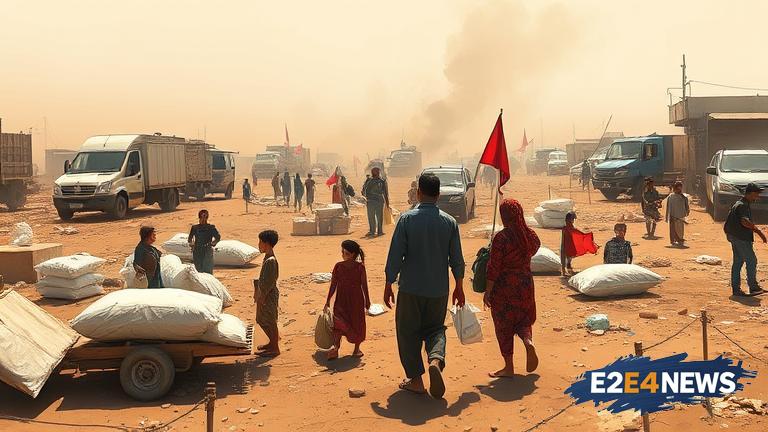The Gaza Strip, a region already plagued by poverty and conflict, is now facing a severe famine crisis. The World Food Programme (WFP) has warned that the situation is dire, with many families struggling to access basic necessities like food and water. Despite efforts to provide aid, the WFP has stated that the assistance is still a drop in the ocean, highlighting the vast scale of the crisis. The Gaza Strip has been under a blockade for over a decade, which has severely limited the flow of goods and people into the region. This has had a devastating impact on the local economy, with many businesses forced to close and unemployment soaring. The humanitarian crisis in Gaza has been exacerbated by the COVID-19 pandemic, which has further strained the region’s already fragile healthcare system. The WFP has reported that over 60% of the population in Gaza is food insecure, with many families relying on aid to survive. The organization has been working to provide food assistance to those in need, but the scale of the crisis is overwhelming. The WFP has appealed for increased funding to support its aid efforts, but so far, the response has been inadequate. The international community has been criticized for its slow response to the crisis, with many arguing that more needs to be done to address the root causes of the problem. The Gaza Strip is one of the most densely populated places on earth, with over 2 million people living in a region roughly the size of Philadelphia. The blockade has made it difficult for people to leave the region, and many are trapped in a desperate situation. The WFP has reported that the crisis is having a disproportionate impact on vulnerable groups, including children, women, and the elderly. Malnutrition is a major concern, with many children suffering from stunted growth and development due to a lack of access to nutritious food. The crisis is also having a significant impact on mental health, with many people experiencing anxiety, depression, and post-traumatic stress disorder (PTSD). The WFP has called for an end to the blockade, which it says is a major contributor to the humanitarian crisis. The organization has also appealed for increased support for its aid efforts, including funding and logistical assistance. The international community has a responsibility to act, and to provide the necessary support to address the crisis in Gaza. The situation is urgent, and every day that passes without adequate action means more suffering for the people of Gaza. The WFP has warned that the crisis will only worsen unless there is a significant increase in aid efforts. The organization has called for a comprehensive approach to addressing the crisis, including support for the local economy and healthcare system. The international community must come together to address the crisis in Gaza, and to provide the necessary support to ensure that the people of the region have access to the basic necessities of life. The crisis in Gaza is a stark reminder of the need for a more equitable and just world, where everyone has access to the resources they need to thrive. The WFP’s efforts to address the crisis are a crucial step in this direction, but more needs to be done to address the root causes of the problem.
